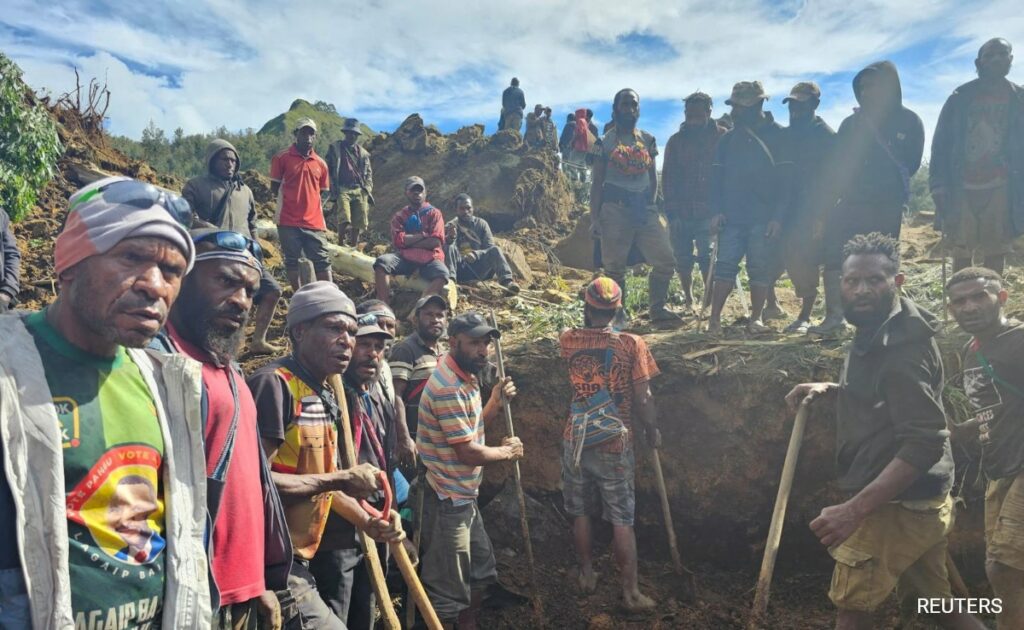A glimmer of hope emerged amidst the devastation unfolding in Papua New Guinea (PNG) on Monday. Residents miraculously rescued a couple, Johnson and Jacklyn Yandam, days after a massive landslide slammed into Enga province, Al Jazeera reported. The Yandams’ emotional reunion, broadcasted by PNG’s NBC News network, stands as a poignant counterpoint to the ongoing search efforts hampered by challenging weather and logistical hurdles.
While the government estimates over 2,000 people may be buried under the debris, only six bodies have been recovered. Heavy equipment critical for further excavation remains inaccessible due to a road closure, necessitating reliance on helicopter support for accessing the remote disaster zone.
Concerns about further mudslides triggered by relentless rains have intensified, adding another layer of complexity to the rescue operation. Authorities anticipate the search efforts to continue for days, with the true scope of the tragedy likely to evolve as rescue teams gain access. Though the Yandams’ survival offers a much-needed reprieve, the overall situation in Enga province remains critically serious.
“We thank God for saving our lives at that moment. We were certain that we were going to die but the big rocks didn’t crush us,” Jacklyn said. “It’s really hard to explain as we got trapped for nearly eight hours, then got rescued. We believe we were saved for a purpose.”
The landslide occurred in the mountainous Enga region in northern Papua New Guinea on Friday last week and the latest figure is a sharp rise from earlier estimates.
Soon after the disaster occurred, the United Nations confirmed that as many as 100 people may have died.
However, it was later revised up to 670, according to estimates from the Chief of Mission for the International Organisation for Migration (IOM) in the country, CNN reported.
But that may now be a major underestimate, according to the latest projection from Papua New Guinea’s disaster agency.
“The landslide buried more than 2000 people alive, caused major destruction to buildings, and food gardens and caused major impact on the economic lifeline of the country,” Lusete Laso Mana, Acting Director of the National Disaster Centre, said in a letter to the UN.
“The situation remains unstable as the landslip continues to shift slowly, posing ongoing danger to both rescue teams and survivors alike,” he said, adding that the main highway to the area had been completely blocked by the landslide.
Notably, Papua New Guinea is home to around 10 million people. Its vast mountainous terrain and lack of roads have made it difficult to access the affected area.

